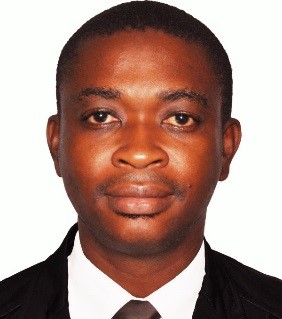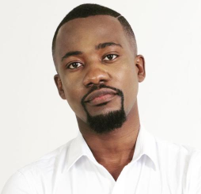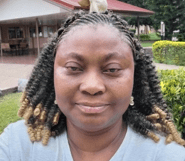February 14 was Chocolate Day. I offered some Ghanaian-made chocolate to family and friends. How I wish we take away this Val’s Day concept from the mind of the youth and input the Chocolate Day concept. Media must help because the history of Valentine’s Day has been misconstrued by media; and on Tuesday, they were happily wishing people Happy Val’s Day instead of Happy Chocolate Day. The youth may see the day as an avenue to fornicate. Prior to Chocolate Day, my daughter of 8 years told me: “Daddy, tomorrow is Val’s Day”. I asked her who told her tomorrow is Val’s Day. She replied that her friends were saying it in school. I then asked her what Val’s Day is and she could not explain. I then corrected her and told her it’s not Val’s Day; rather, Chocolate Day. To help sink this into her mind, I offered her money to buy some Ghanaian-made chocolates, and she gladly enjoyed them. How I wish all parents will do same. By the way, has anyone tried those foreign chocolate being sold on our streets? They taste so artificial and melt, unlike the Ghanaian-made chocolate made in Tema.
In 2005, the late Jake Obetsebi Lamptey and his advisors at the time saw the drifting away of our youth into an unprecedented level of promiscuity. They then decided to introduce the Chocolate Day which has been a good one so far.
In those days young girls and boys will move around in the evening wearing red cloths ready for an outing which may end up in fornication. Jo Ellen Fair, in her research article entitled ‘African Studies Review’, gave a detailed report on the rise of Valentine’s Day in Ghana. She stated that Valentine’s Day was borrowed from abroad and altered to fit local circumstances. Valentine’s Day is part of a complex set of imported and indigenous lifestyle market that are used increasingly in urban Africa by individuals and social groups to construct identities as older and more traditional cultural norms and forms loosen their hold. The self-conscious choice and arrangement in one’s life of these markers – some local, some imported, all under constant reconfiguration-increasingly, according to Chaney (1996, 2 is culture). As Chaney argues, lifestyle creation through choice does imply a new superficiality of culture or a looming monotony of global taste. However, the ability of individuals and groups to craft lifestyles through choice of symbols and consumption of products empowers them by uniting them with like-minded people in their own society and abroad, while distinguishing and separating them from persons near and far whose preferences, behaviours and values mark alternative paths of personal progress. The growth of the celebration of Valentine’s Day in Ghana is associated with the privatisation of broadcast media, the reestablishment of vibrant urban commercial sector, rising consumerism, and a reexamination in Accra – and throughout urban Africa – of the contours of courtship and marriage.
Many in the west consider Valentine’s Day a thoroughly contemporary contrivance, a holiday manufactured by the greeting card industry. But the holiday has a deep history in western culture: apparent pre-Christian antecedents in the Roman festival of Lupercalia; a pair of Saints Valentine putatively beheaded by Claudius II in the third century; churches and shrines dedicated to the martyrs’ memory throughout Europe; and a long association of the holiday with the desires of the human heart (Chase 1956; Myers 1972; Baird 1990; Santino 1994; Schmidt 1995.)
Responding to increasing pressure from external funders – the World Bank, IMF, and private financiers – the government of President Jerry Rawlings acceded in 1995 to demands for deregulation and privatisation of national broadcast media. Radio was the first broadcast medium to be deregulated, with the Voice of Legon (now named Radio Universe) as the first private, non-governmental radio station in late February. Few months later in April, Joy FM began broadcasting as Ghana’s first commercial station. Several stations followed, and by 1997 there were so many commercial stations operating in the Accra area. With so many new stations, the radio industry was confronted with problems of content and audience: what to broadcast, how to attract listeners, and how to deliver an economically viable audience to potential advertisers. Promotions seemed to be the answer. “We got hold of broadcasting promotion books, and we ran with them,” said Komla Dumor, Joy FM’s morning personality. “Every station in town did the same. Dumor said Joy initiated Accra’s Valentine Day’s promotions in 1996 because the station “wanted to build a solid base listenership”.
In view of the this, there was the establishment of Valentine’s Day in most especially the youth, along with the increasing concern of promiscuity, The Chocolate Day – known as National Chocolate Day – was instituted to take away the mind of the youth away from Valentine’s Day. It is a celebration instituted by the Ghana Tourism Authority in 2005. The celebration, which is earmarked for the of February annually, is targetted at boosting the domestic consumption of Ghanaian chocolate and other cocoa-based products to promote domestic tourism and to give a healthy orientation to the celebration of Valentine’s Day. The initiative is also aimed at shifting the attention of the youth from engaging in sexual activities toward showcasing love to their loved ones through a gift of chocolate. The activity was instituted by the Ghana Tourism Authority in partnership with the Cocoa Processing Company of Ghana.
At the launch of the celebration, the minister made reference to the low consumption of cocoa products in the country even though the country was the second largest producer of cocoa in the world, and hoped that the institution of the day will encourage consumption among Ghanaians. The ministry also mentioned the proposed establishment of a cocoa museum following the initiation of the day.
Cocoa production has been the mainstay of Ghana’s economy since the 1870s. It dominates the agricultural sector and contributes about 30 percent of the country’s export earnings. Cocoa employs about 800,000 farmers directly. It also supports the livelihoods of others in the commerce, service and industrial sectors of the Ghanaian economy. This makes it an important generator of revenue. Chocolate comes from cocoa. On Valentine’s Day, instead of engaging in unproductive activities, it’s prudent to visit tourist attractions where the learning of cocoa will be unveiled. Businesses will also make money which will help the national economy. Cocoa Research Institute is one attraction many people could visit on the day. Another attraction is the Cocoa Processing Company in Tema. The Tetteh Quarshie farm must also not be left out. When these cocoa-based attractions are promoted and visited, the end result will be a desire created in the youth to explore our chocolate and cocoa-based tourist sites. School children must be made to travel to other regions, sharing chocolate. When this is well-promoted, and sponsors attracted, a great avenue to promote domestic tourism would have been put into reality.
How will green tourism be promoted?
Green tourism seeks to promote visits to green environments. Trees and nature are mostly green. As tourists – both domestic and international – visit green sites, they will learn more about nature and our agriculture. One good destination to visit is the Cocoa Research Institute and the Tetteh Quarshie Farm, not forgetting the Aburi Gardens, as mentioned earlier. The Cocoa Processing factory in Tema must also be a must-go attraction. The process of learning the processing of chocolate for our school children will be of great benefits to us all.
Philip Gebu is a Tourism Lecturer/Trainer. He is the C.E.O of FoReal Destinations Ltd., a Tourism Destinations Management and Marketing Company based in Ghana and with partners in many other countries. Please contact Philip with your comments and suggestions. Write to [email protected] / [email protected]. Visit our website at www.forealdestinations.com or call or WhatsApp +233(0)244295901/0264295901.Visist our social media sites Facebook, Twitter and Instagram: FoReal Destinations










